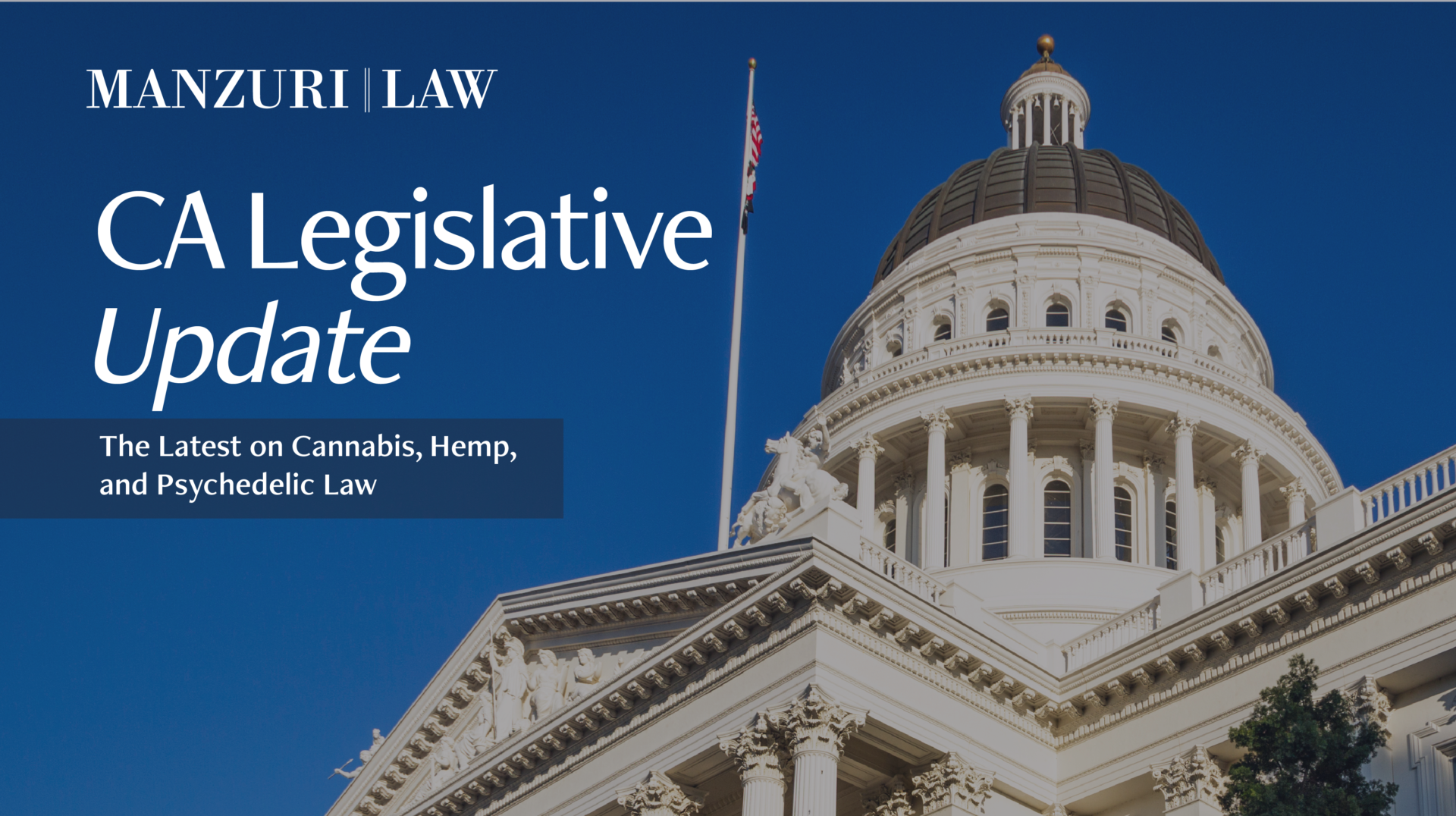Sacramento survived another round of suspense hearings late last week, with several bills held by the Assembly and Senate Appropriations Committees as legislators and stakeholders prepare for the last two weeks of the legislative session. With significant cannabis policy pushed through in the budget process (e.g. consolidation of regulatory agencies, trade samples, CEQA streamlining), few cannabis bills were due to be heard on suspense day. Here are the highlights on some keys bills that remained:
- Hemp Regulation: Sponsored by the US Hemp Roundtable, AB 45 (Aguiar-Curry) would create a regulatory framework for hemp products under the California Department of Public Health. The bill passed unanimously with no amendments from the suspense file but faces a floor fight in the Senate. California operators ranging from small growers in the north to retail operators in Los Angeles oppose the legislation. Some opposition argue the current language (amended June 28, 2021) does not protect against compounds such as delta-8-THC. Others are worried about testing standards and enforcement. The author and sponsors are working on additional amendments to allay the concerns of opposition but are under pressure with the end of the legislative session looming. If the bill survives the Senate floor it will need to be voted on in the Assembly again – to ensure all legislators agree to the latest version of the bill – before it could move to the Governor’s desk.
- Enforcement: Co-sponsored by the United Food and Commercial Workers Western State Council and the United Cannabis Business Association, AB 1138 (Rubio) would increase enforcement on unlicensed cannabis activities through civil penalties of up to $30,000 per violation. Assemblymember Rubio authored two similar versions of this policy in previous years but faced roadblocks in fiscal and policy committees in 2019 and 2020, respectively. Although AB 1138 enjoyed unanimous support at the suspense hearing with no proposed amendments, support on the house floors is not guaranteed.
- Psychedelics: SB 519, which proposed the decriminalization of certain psychedelics, did not have enough support going into the suspense hearing and was therefore pulled by its author, Senator Wiener. It is now a two-year bill, meaning it is eligible to move forward, but not until 2022. Though disappointed, Senator Wiener remains dedicated to moving this policy forward next year.
Although the legislative process ended the progress of many bills, some stakeholders still seek to use the budget process to continue to push their ideas to the Governor’s desk. Yes, the state budget was passed by the Legislature back in June and signed by Newsom in July. However, budget trailer bills may still be used to assist with its implementation. Ideas for policies including social equity, tax reform, and maximum limits for delivery vehicles are currently floating around the halls of Sacramento, but it is unclear which ones have the legs to become law. With limited time left in the session (all bills must pass by 11:59pm on September 10 to proceed to the Governor’s desk this year) and the newly-formed Department of Cannabis Control still working on consolidation efforts, advocates pushing new policies face an uphill battle. That said, a lot of policy can come together at the end-of-session and bills can be heavily amended to push last-minute legislation. Those that have the best chance of survival have authors and sponsors who have worked closely with the Administration and regulatory authorities to ensure that they will get Newsom’s signature if it hits his desk. Given current events, this is more challenging to do this year than in previous ones, but both Governor Newsom and the new department have indicated a desire to continue to establish policies to improve the state’s cannabis industry, so there is a chance for more new cannabis laws to emerge soon.
For the latest updates in cannabis law, subscribe to our newsletter below or contact us for legal counsel related questions.
Disclaimer: This article has been prepared and published for informational purposes only and is not offered, nor should be construed, as legal advice.

